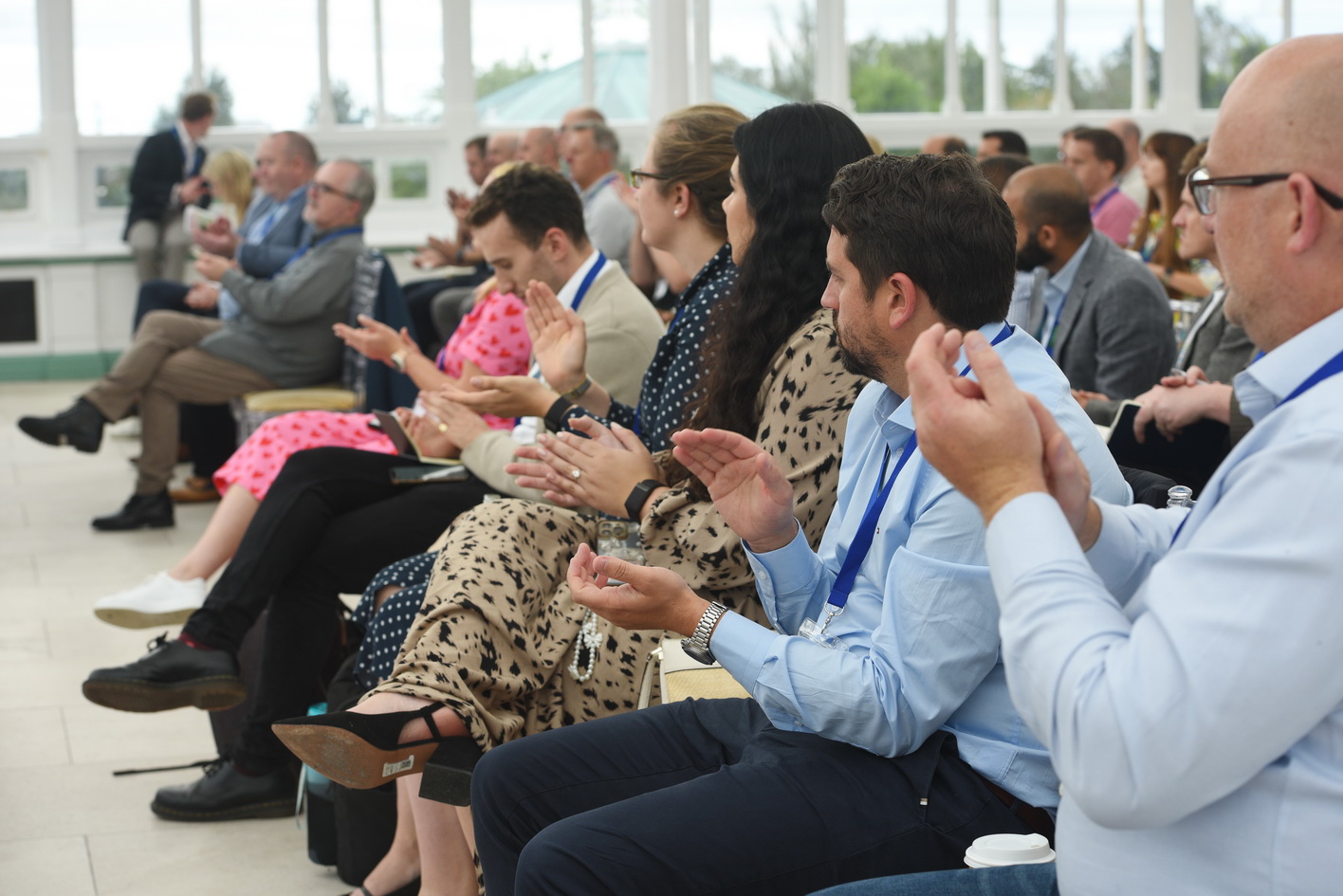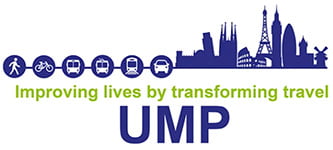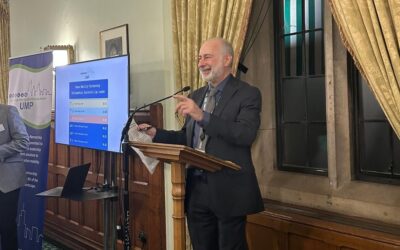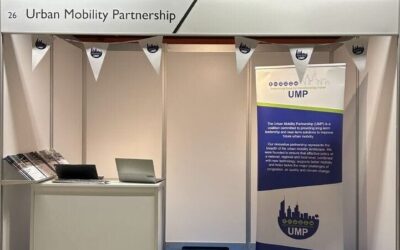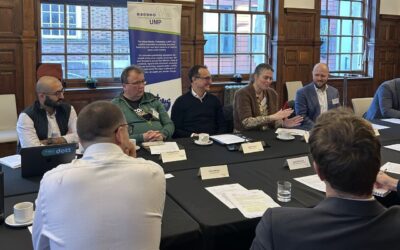Policy panel at UMP Summit, pictured left to right: Sam Knight (Transport for Greater Manchester, Anne Shaw (Transport for West Midlands),
Katie Hulland (Women in Transport), Max Sugarman (Intelligent Transport Systems) and Laura Holloway (Enterprise Mobility)
On 5 September we held the second Urban Mobility Partnership (UMP) Summit, this year in partnership with the Liverpool City Region. It was an excellent day filled with detailed discussions on all things mobility, and we hope all who attended left feeling optimistic about the direction of the UK transport sector – there’s undoubtedly a lot of good happening out there.
And for those of you who couldn’t make it but would still like a bit of insight into the day, we’ve got you covered. Keep on reading for a summary of the day’s panel discussions and presentations, though unlike the Summit itself this article does not end with food trucks, drinks, and games.
We kicked things off with an opening address from Liverpool City Council Member Laura Robertson-Collins, who serves as a Cabinet Member for Neighbourhoods & Communities. In addition to welcoming all the guests to the city of Liverpool, Cllr Robertson-Collins discussed decarbonisation efforts the Council is undertaking, as well as greater integration throughout the transport network. Audience members were delighted to hear that transport is playing such a prominent role in the policy thinking around neighbourhood and community planning, especially given the likely expansion of housing and building under the new Labour Government.
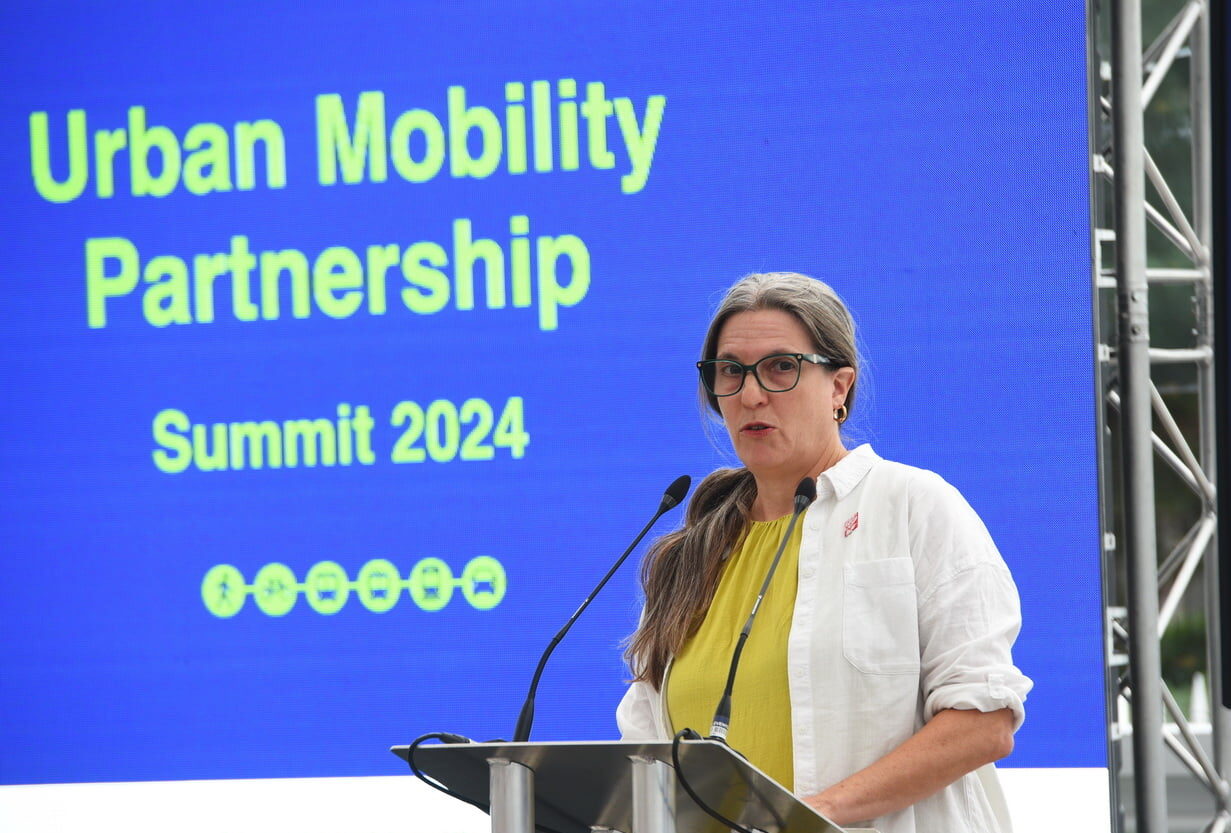
Councillor Laura Robertson-Collins (Liverpool City Council)
Transitioning to the first panel of the day, chaired by Maria Machancoses from Midlands Connect, we then heard about Investment into the Future of Transport. This panel gave an excellent insight into what transport business leaders are looking for when making investment decisions. As always, we learned that more can be done to break down barriers and build trust between the public and private sectors. We know Labour’s top priority – or ‘Mission’ – is to create economic growth across the country, and panellists Sam Patel from Enterprise and Bruce Dingwall of Stagecoach told us of their strong desire to take part in that mission. We also heard how the private sector is aiming to drive growth through decarbonisation of the sector, as net-zero innovations are at the heart of their business strategies. Lastly, the panellists spoke about how digital enablement can drive greater efficiency in the sector and also lead to better user experience and engagement.
The takeaway from this panel? Public-private partnerships are vital to decarbonisation, growth, and innovation.

Future of Transport Panel: Bruce Dingwall (Stagecoach), Sam Patel (Enterprise Mobility) and Maria Machancoses (Midlands Connect)
Next up was the policy panel. This jam-packed panel (see headline photo) could have gone on all afternoon, as there was a lot of ground to cover. As we had the perspectives of policy officials from the Liverpool City Region (LCR) as well as Greater Manchester, this panel was able to really get to grips with what we can expect in the local policy realm under the new Government. We know transport-specific devolution is on the way, as is greater control over local planning and building. Similar to the morning’s keynote, it was encouraging to hear just how much transport policy is being thought of in broader planning discussions. The panel also touched on key issues around accessibility of public transport and user experience. The more end-users can feature and influence policy and transport plans, the more there will be uptake of multi-modal transport, a shared goal of everyone at the Summit.
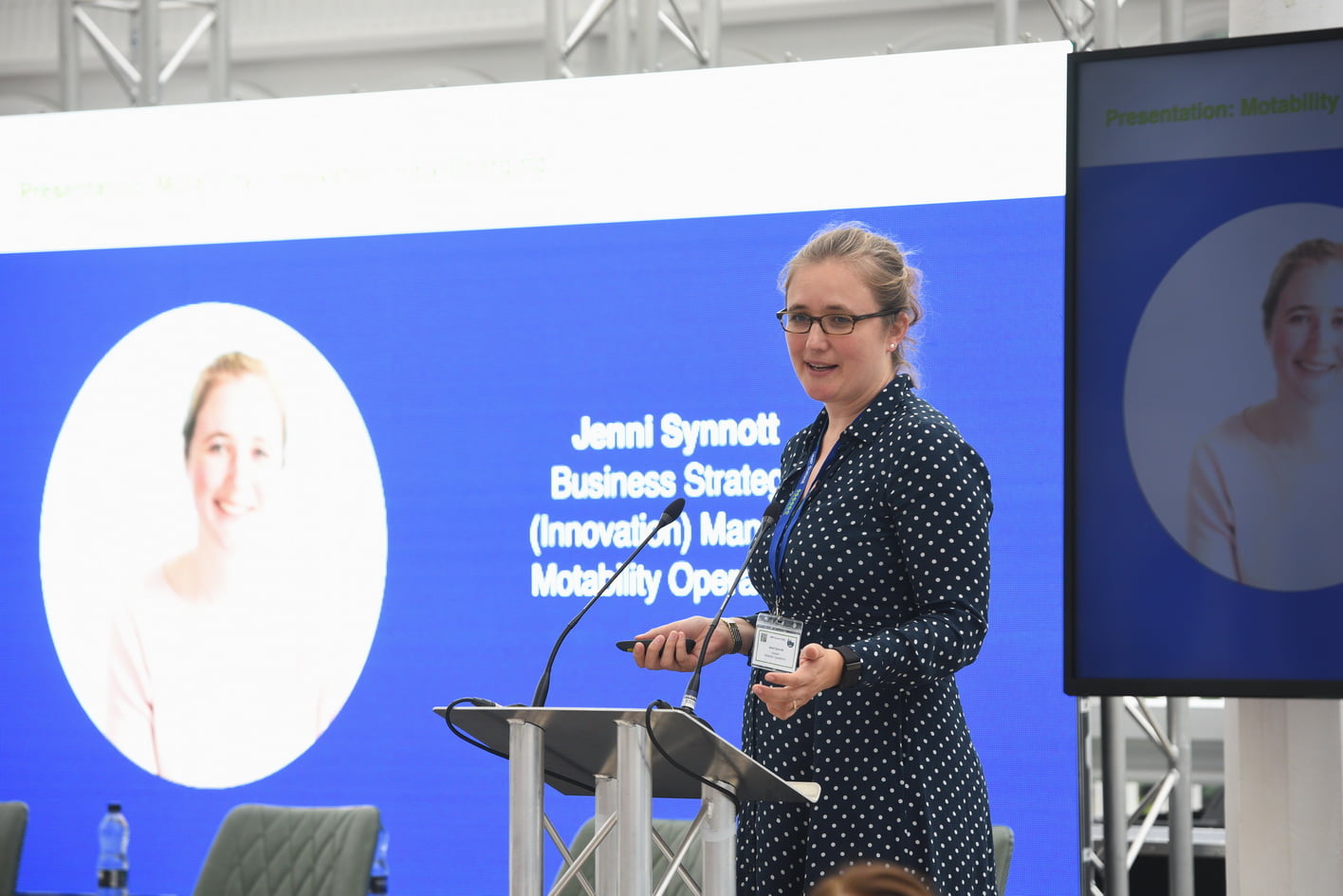
Jenni Synott (Motability Operations)
Following the policy panel, we kicked off our first presentation of the day. Here, Jenni Synott from Motability gave a thought-provoking talk on how their users are using – and importantly thinking about – electric vehicles. Rather than getting hung up on barriers (we know them all, range anxiety, cost, charging infrastructure etc.), Motability focused on how they are working with their broad-based users to overcome these barriers. From simple education and discussion, to helping their first-time users secure home-based charging infrastructure, to at other times partnering with like-minded companies to help users improve their journey experience, Motability showed how their intentional thinking and user-interaction is building trust in EVs one user at a time.
One of the key themes that came up throughout the day was the intersection of planning and transport. That’s where the next panel took us. With Government housing targets going up and the Government also signalling that planning permissions will be greatly expedited, thinking about how transport infrastructure will carry people and services to and from these new developments will be crucial. Panellists touched on how good planning will help reduce congestion, or in the case of new neighbourhoods stop it before it even begins. Planning authorities must also be mindful of accessibility for all users, while also integrating decarbonisation goals into their plans.
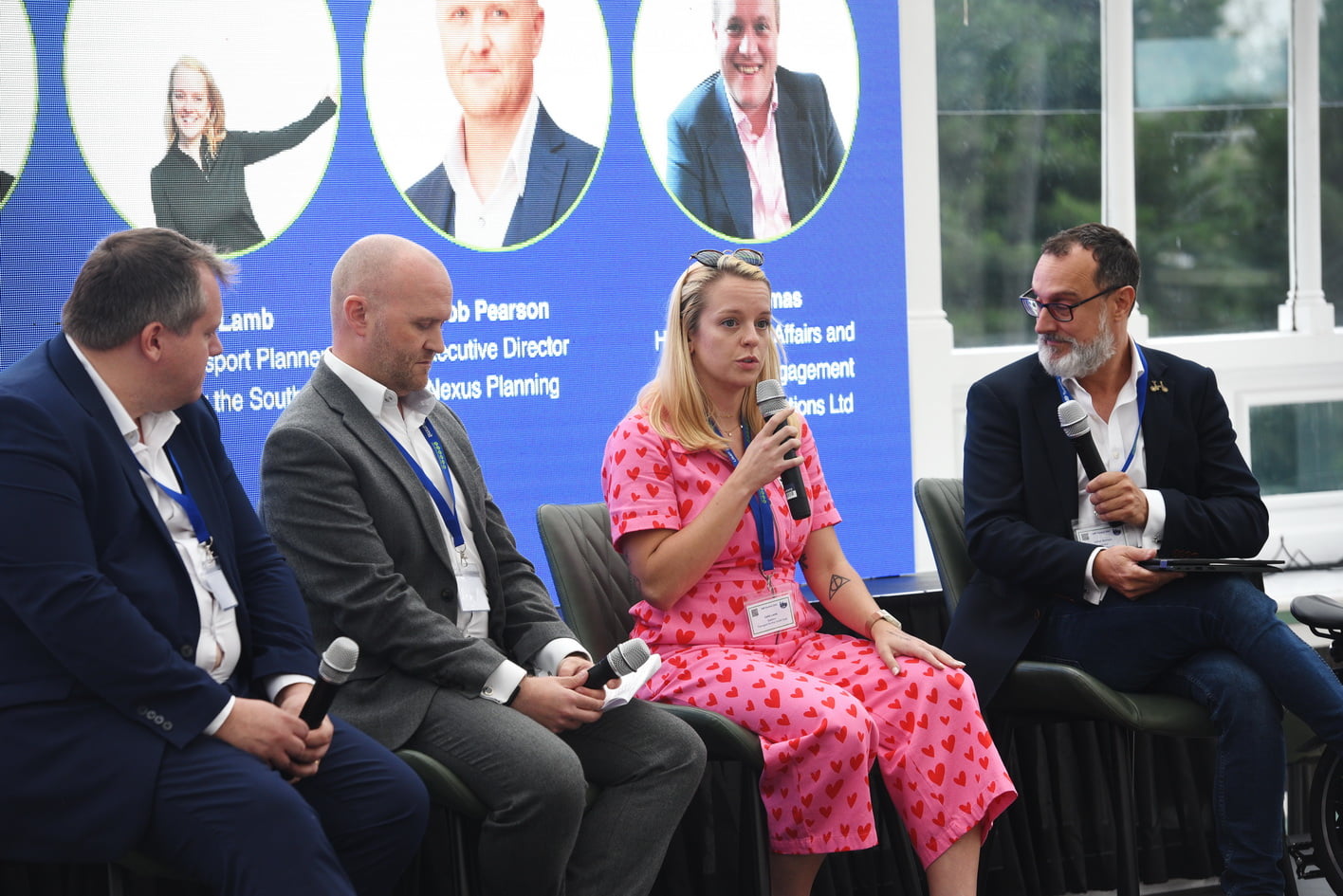
Planning panel: Ed Thomas (Motability Operations), Rob Pearson (Nexus Planning) and Julian Scriven (Brompton Bike Hire)
After the planning panel, we were delighted to welcome Huw Jenkins from the Liverpool City Region who gave a detailed update on their transport strategy. With Metro Mayor Steve Rotherham moving forward the LCR’s net-zero target to 2035, the region has to move quickly to decarbonise. Much of their plans rely on significant strides being made in the transport sector, including by reducing the number of vehicle trips being made by ramping up the use of other transport modes. Encouragingly, the plan also includes a rolling programme, understanding that needs will change over time especially as new tech gets created and refined. Keeping transport infrastructure up to date helps reduce costs in the long-term, something the plan recognises.
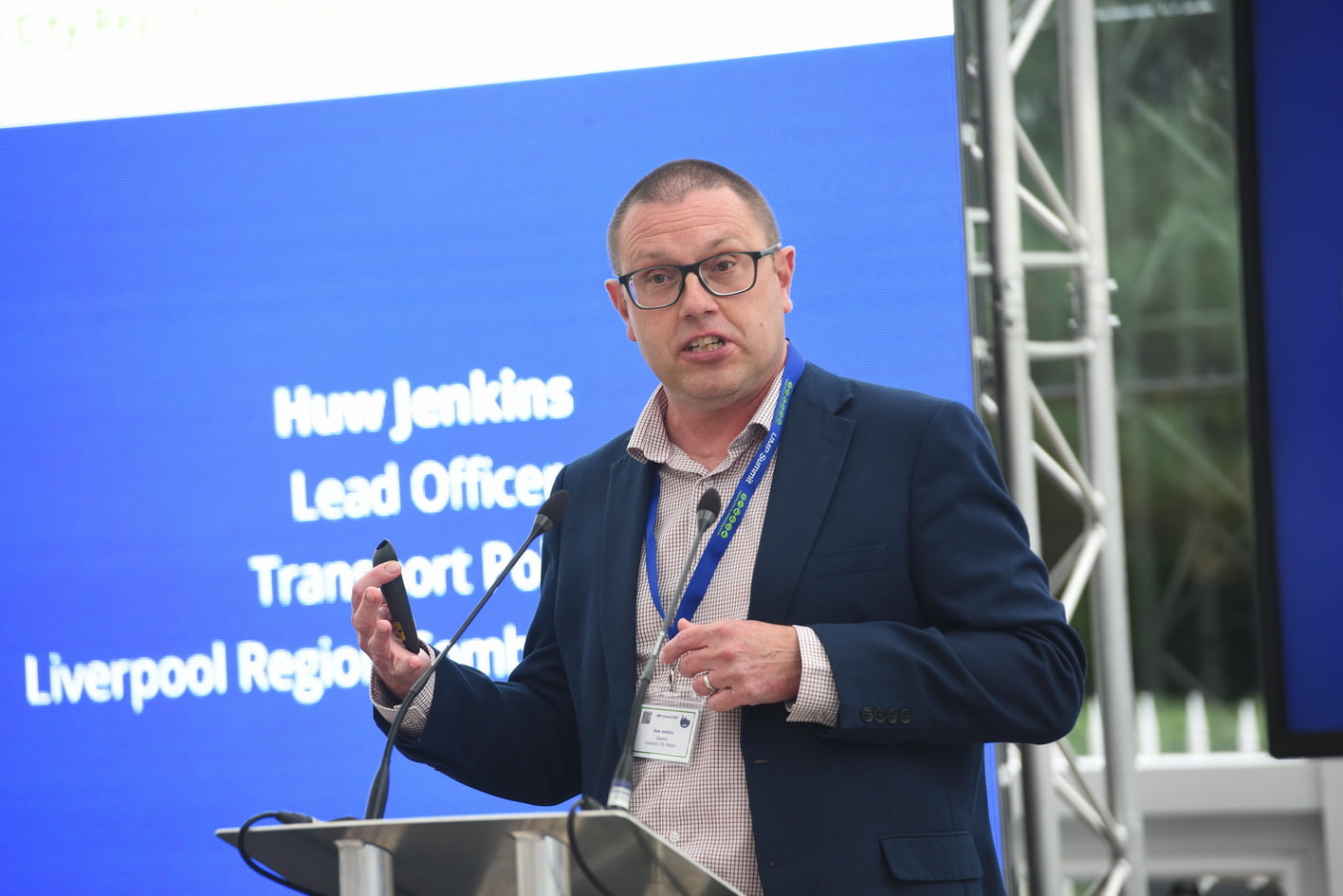
Huw Jenkins (Liverpool City Region)
The penultimate presentation highlighted shared micro-mobility. UMP member TIER-Dott, represented on stage by Iqbal Ahmed, Head of Public Policy in UK&I, gave a candid discussion about the challenges and opportunities in the micro-mobility sector. The presentation highlighted the importance of operators being realistic in their promises and expectations for their product, while for their part cities and government partners should aim to be less prospective in their operating requirements. This give and take from both sides of the partnership will allow innovation to more easily flourish, while giving end-users more safe, clean modes of urban transport. The presentation ended by highlighting the value of the data that micromobility generates from its users, and how open access agreements between operators and regulators can greatly improve trips for all transport users.
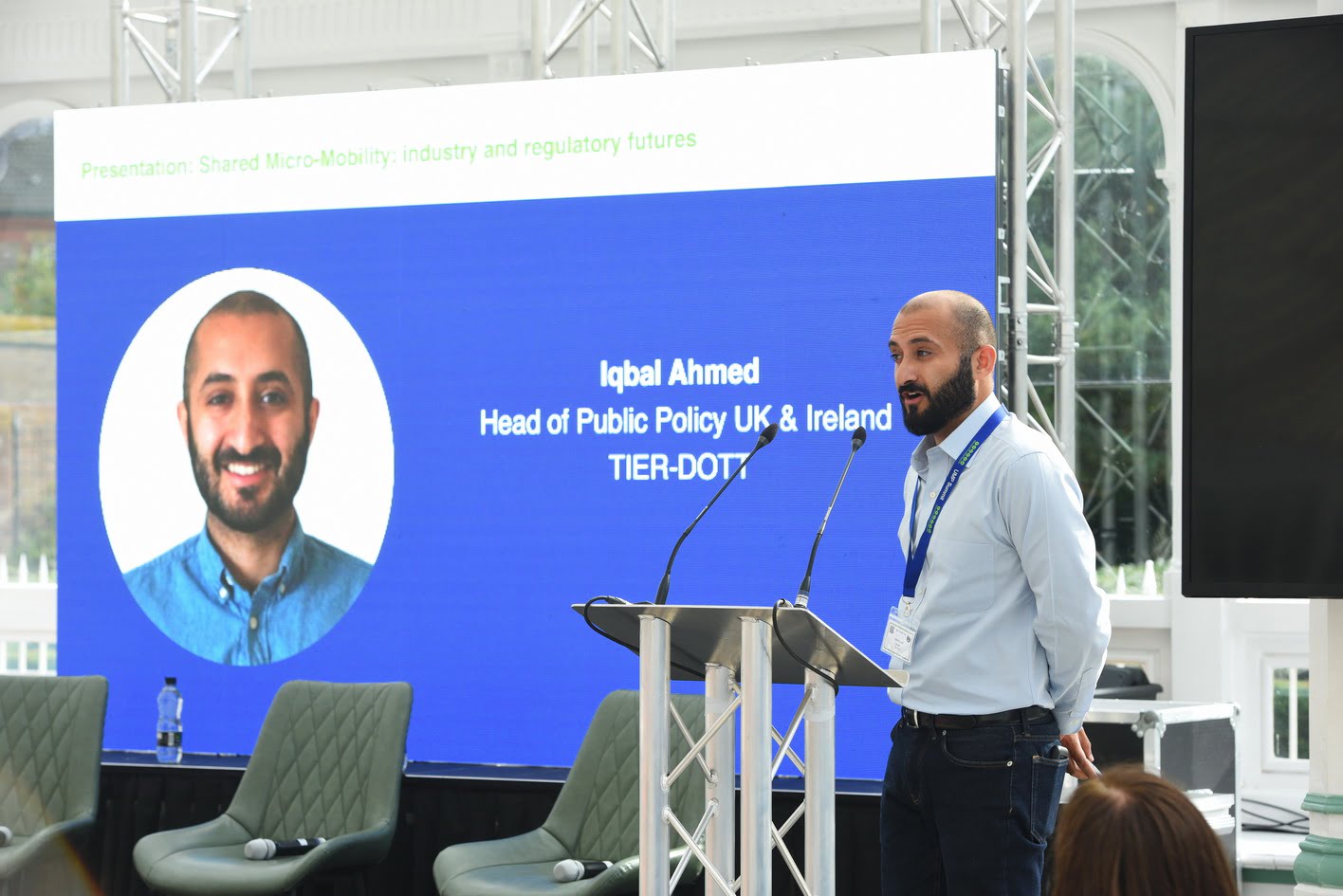
Iqbal Ahmed (TIER-Dott)
Anchoring the day was UMP member Liftango’s excellent discussion on corporate travel and why corporations may be willing to ‘foot the bill’ in transport. And joining Liftango’s Monét McGee on stage was Dr Carole Couper, Associate Professor in Strategy and International Business from the University of Birmingham. The duo explored employer interest in securing clean, safe, multi-modal transport options for their employees. The presenters made an interesting case as to why it’s within a business’s self-interest to collaborate – and importantly put up funds – with government and the wider public towards a better transportation system. Importantly, this session also explored how SMEs can be included in these types of conversations, which typically centre around only the largest employers.
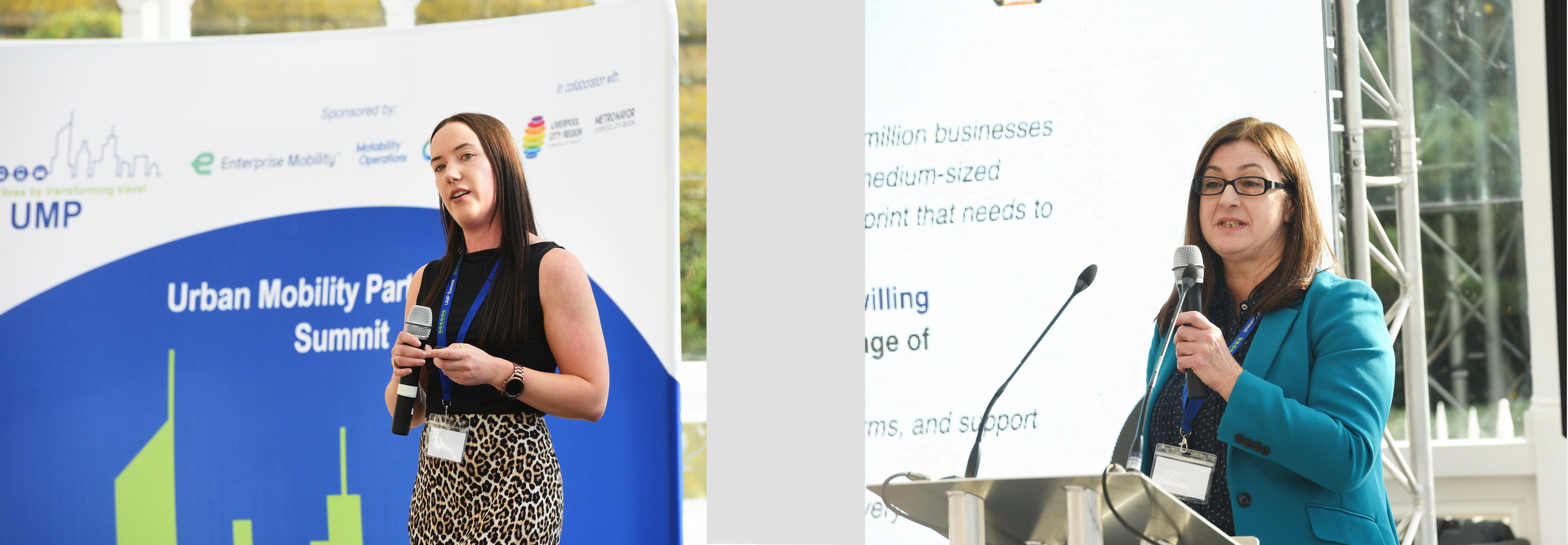
Monét McGee (Liftango) and Dr Carole Couper (University of Birmingham)
The second UMP Summit was filled with incisive conversations on a wide range of transport-related topics. It also included excellent networking opportunities for all involved, along with some delicious food and drinks which encapsulated the best Britain has to offer, such as fish and chips, pie and mash, and of course, Pimm’s. We can’t thank our supporters, the panellists and speakers, and the attendees enough for their support, and we hope to see all you and more at the next UMP event!
